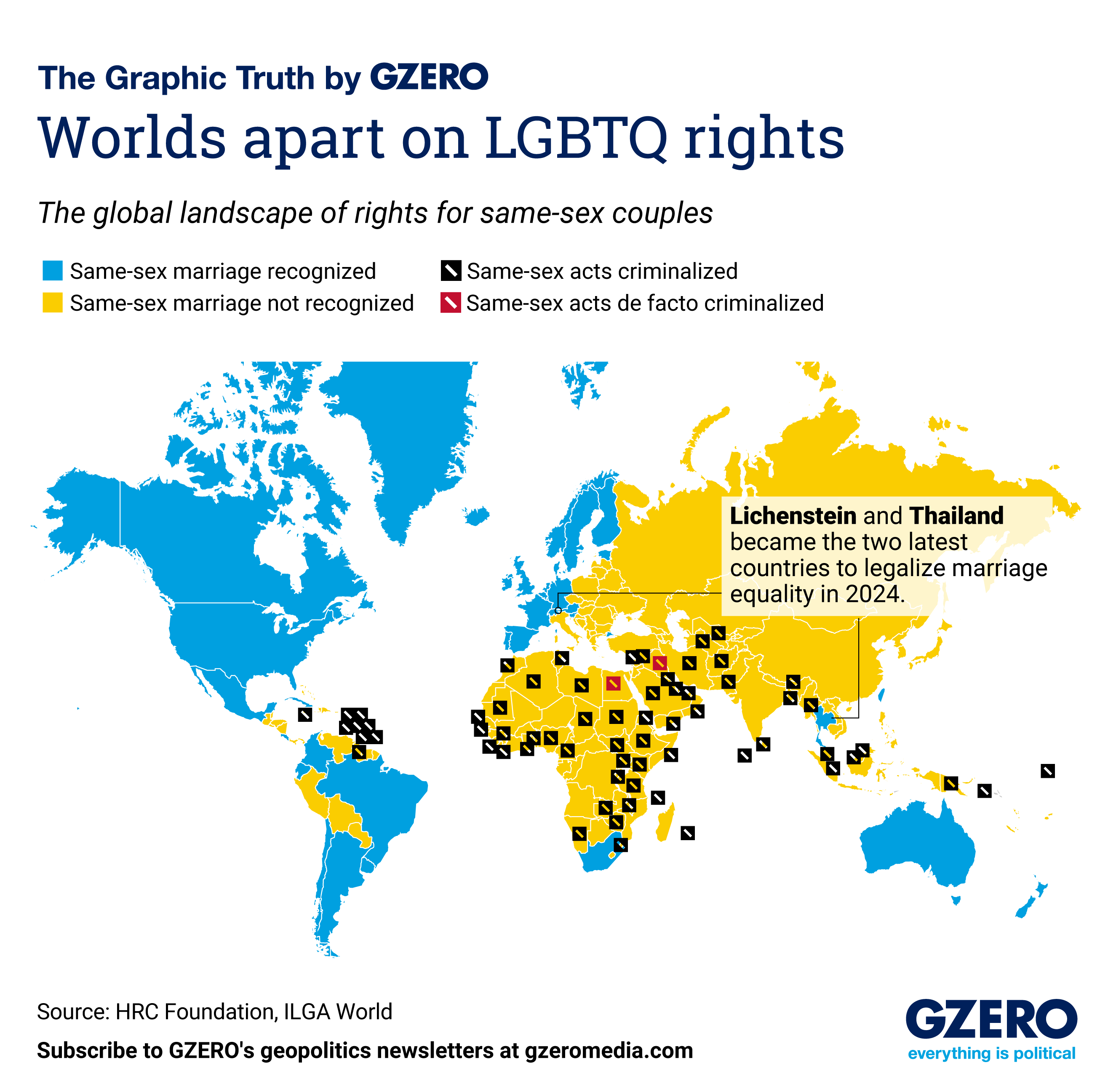June 03, 2025
LGBTQ+ rights remain far from equal around the world. As of 2025, only 38 of the 195 countries globally recognize same-sex marriage. While some nations are changing course — Liechtenstein and Thailand both legalized same-sex marriage this year — others are moving in the opposite direction, enacting discriminatory laws that target LGBTQ+ communities. In the United States, state-level lawmakers in Oklahoma are pushing to restrict transgender rights and challenge the 2015 Supreme Court ruling that legalized same-sex marriage. Meanwhile in Uganda, the Constitutional Court last year upheld an anti-gay law – initially signed in 2023 – that includes the death penalty for certain homosexual activity, underscoring the legal challenges that LGBTQ+ individuals face in certain countries across the globe.
More For You
Hellenic coast guard performs SAR operation, following migrant's boat collision with coast guard off the Aegean island of Chios, near Mersinidi, Greece, February 4, 2026.
REUTERS/Konstantinos Anagnostou
15: The number of migrants who died after their boat accidentally collided with a Greek Coast Guard vessel in the Aegean Sea on Tuesday. Two dozen people were rescued.
Most Popular
Walmart is investing $350 billion in US manufacturing. Over two-thirds of the products Walmart buys are made, grown, or assembled in America, like healthy dried fruit from The Ugly Co. The sustainable fruit is sourced directly from fourth-generation farmers in Farmersville, California, and delivered to your neighborhood Walmart shelves. Discover how Walmart's investment is supporting communities and fueling jobs across the nation.
Workers repair a pipe at a compound of Darnytsia Thermal Power Plant which was heavily damaged by recent Russian missile and drone strikes, amid Russia's attack on Ukraine, in Kyiv, Ukraine February 4, 2026.
REUTERS/Valentyn Ogirenko
Democratic Alliance leader John Steenhuisen announced Wednesday that he will not run for a third term as leader of the liberal, pro-business party, after months of internal pressure over a host of controversies – including allegations, since cleared, that he used the party credit card for Uber Eats.
© 2025 GZERO Media. All Rights Reserved | A Eurasia Group media company.
